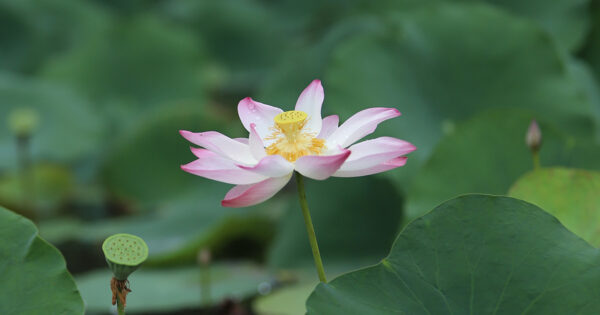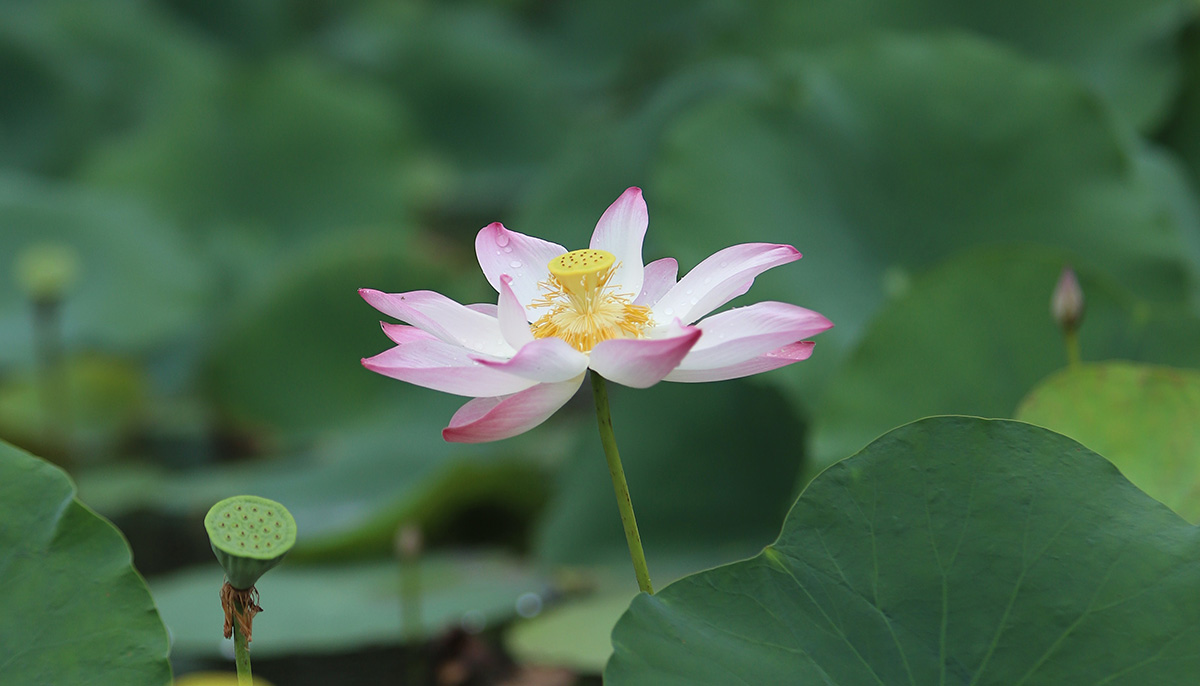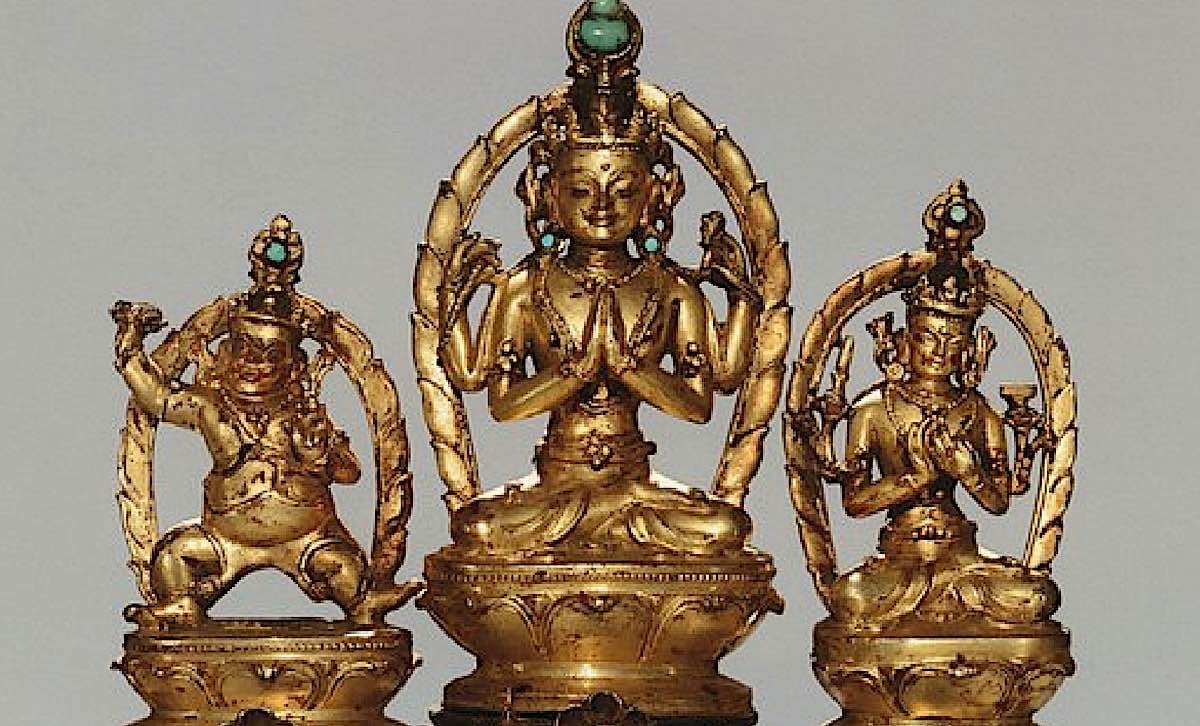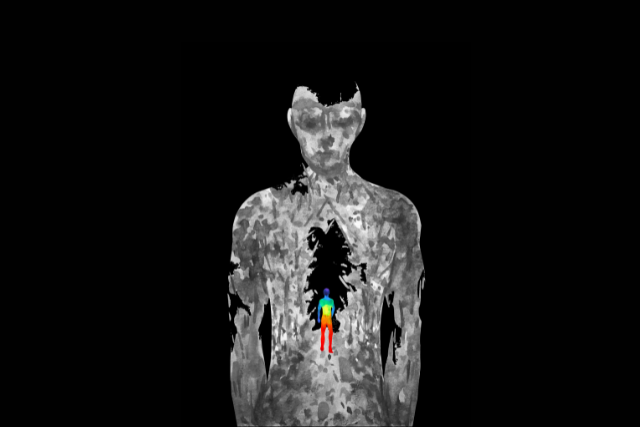Dharma for Times of Global Trauma
Tara Brach shares the importance of training mindfulness teachers and practitioners to nourish a sense of our collective belonging in our increasingly traumatized world. The post Dharma for Times of Global Trauma appeared first on Lion's Roar.

Psychologist and Buddhist teacher Tara Brach shares the importance of training mindfulness teachers and practitioners to nourish a sense of our collective belonging in our increasingly traumatized world.

Photo by Tiểu Bảo Trương.
In the time span of just three years, not only has most of our relating gone virtual, but it is charged with a heightened sense of a traumatized world. Collectively, we’re facing the catastrophe of a warming planet, waves of pandemics, racial and social injustice, the growing strength of authoritarianism, the horror of war, and global instability unlike we’ve seen since World War II. Amidst all this trauma, people are coming to virtual meditation classes seeking practices and teachings that will provide true refuge.
The shift from separateness to realizing and cherishing our collective belonging is possible for beings everywhere.
The virtual world has enabled a growing diversity of participants and allowed for a surprising degree of intimacy. During a recent online meditation gathering, a Brazilian woman shared her unprocessed grief about losing family members and friends when the pandemic devastated her country. Another told us about the daily microaggressions she experiences as a Vietnamese woman in France. A third, a social activist from the US, spoke of the harsh rejection he feels from a brother who has very different political views. Another spoke of the trauma of losing her young son several years ago to suicide. Each came with the same basic inquiries: How can I navigate these difficult times? How can spiritual teachings and practices help me find healing, connection and freedom?
Buddhist teachings point to the most elemental cause behind our suffering — forgetting who we are. We forget our belonging to one another and to our larger body of earth. We forget our belonging to the boundless, loving awareness which is our shared essence. Instead, we live in a trance of egoic separation, with habits of grasping and self-protection that lead to violating ourselves, others, and our world. We are at a time in history where the illusion of separate self — with its unprocessed fear, aggression and destructiveness — threatens all life systems on our planet. More than ever, we need practices that can evolve consciousness from “self-other” or “us-them” to “we” — practices that motivate us to act on behalf of our collective wellbeing.
While the cultivation of mindfulness and compassion can awaken us from a trance and evolve global consciousness, they require wise adaptation to the sufferings of our times. In our increasingly individualistic-oriented society, we need a strongly focused dharma of interdependence. This means consciously shifting from a focus on the individual, to realizing our collective belonging.
This crucial, adaptive shift is beginning to unfold. A growing number of Buddhist and secular mindfulness teachers, notably those who are Black, Indigenous, and People of Color, are applying mindfulness and compassion to four primary domains that enlarge our sense of identity:
Mindful Communications and Conflict Resolution
To realize our interdependence, we need to bring the basic teachings of mindfulness and compassion into all relationships. Mindful communicating takes intentionality and practice. Individuals, groups and spiritual communities benefit from having clear agreements for speaking and listening (for example, see those offered by the East Bay Meditation Center), as well as guidelines for resolving conflict, such as those offered in Non-Violent Communications (Bay Area NVC). As a practice, relational meditations can be deepened through interactive mindfulness workshops, RAIN partners, Insight Dialogue, Cloud Sangha mentoring groups and other formats that train us to be awake, embodied, openhearted and real with each other.
Trauma-Sensitive Meditation
Trauma is the suffering of disconnection, and our practices can either bring healing or exacerbate the pain. We need to recognize the symptoms of trauma, and have an awareness of how certain styles of meditation can trigger PTSD. Teachers should be trained to help students customize meditation so that they can resource themselves in an experience of love and safety, and find the healing of an enlarged sense of connectedness.
Multicultural Competency, Sensitivity and Equity
We have core conditioning to devalue non-dominant others for characteristics like race, religion, gender identity, sexual orientation, economic class and ability. We cannot awaken spiritually without an awareness of the intersecting identities that shape our experience of the world and separate us from each other. This awareness grows as we investigate, with compassion, the bias and societal conditioning we each carry from the dominant culture we live in. A dedication to this process is essential if we are to create safe and welcoming spaces for diverse others, build meaningful community and realize the truth, joy and freedom of our collective belonging.
Compassion in Action, or Engaged Spirituality
The spiritual path is often considered as the inner work of an individual, and yet our inner practice is inseparable from our ways of engaging with our wider society. As awareness awakens, we realize our connectedness and oneness with all parts of life. The natural expression of this wisdom is a care for our world, an active response to suffering, and a trust in and cherishing of life’s intrinsic beauty and goodness.
These domains of an interdependent dharma were deeply relevant to the sharings in our meditation gathering: Trauma. Racism. Loss. Dividedness. Social Activism. Importantly, each person was held in the care and safety of our virtual sangha. Together we explored inquiries and reflections that might be helpful, including RAIN and self-compassion, self-forgiveness, releasing blame and resting in loving awareness. While I guided each in different ways, the common denominator was a shift from the prison of a reactive separate self to realizing an enlarged sense of being. Their takeaway was that this is not “my” pain, it’s “our pain.” They were finding refuge in the dharma of interdependence — a shared, awake and tender field of awareness.
For the last two decades, I’ve been training teachers to teach meditation and, increasingly, the emphasis is on this shift from the individual to the collective. For the last five years I’ve been leading the Mindfulness Meditation Teacher Certification Program (MMTCP) with Jack Kornfield and a wonderful, diverse team of now 81 teacher-mentors, training 2500 new teachers from over 70 countries. The way we teach teachers highlights these same four domains of trauma sensitive meditation; multi-cultural competency, sensitivity and equity; mindful relationships; and engaged spirituality.
The graduates of MMTCP, along with many other like-minded mindfulness teachers, are sharing this dharma of interdependence around the world: working with doctors in NYC on the front lines of the pandemic, guiding the staff at a major European environmental organization, teaching women in a clinic in Pakistan, teaching in schools, prisons, corporations, and working with veterans and those with disabilities. Mindfulness communities have sprung up in places of great strife and trauma, like Hong Kong, Ukraine, Ethiopia, Israel and Palestine. Mindfulness teachers are drawing on multicultural understandings, developing skills working with trauma, handling conflict, and dedicating to compassion in action — the bodhisattva path.
This is the hope: Teachers and practitioners, in growing numbers, who nourish a deepening sense of our collective belonging and foster the evolution of consciousness. How else will we humans hold hands and act on behalf of the earth? How else will we go beyond the political dividedness that leads to violence and oppression? How else will we create beloved community, a world where all life is cherished, the vulnerable are cared for, and we naturally live for the common good?
If we can imagine our potential as humans — what is possible — we can manifest the fullness of our true nature. For those in my meditation group facing their suffering, each found some taste of connectedness and Oneness, some remembering of the loving awareness that lives through all life. The shift from separateness to realizing and cherishing our collective belonging is possible for beings everywhere. The dharma of interdependence is what will allow us to create the world we long for, a world that expresses our natural capacity to live from love.

 KickT
KickT 































